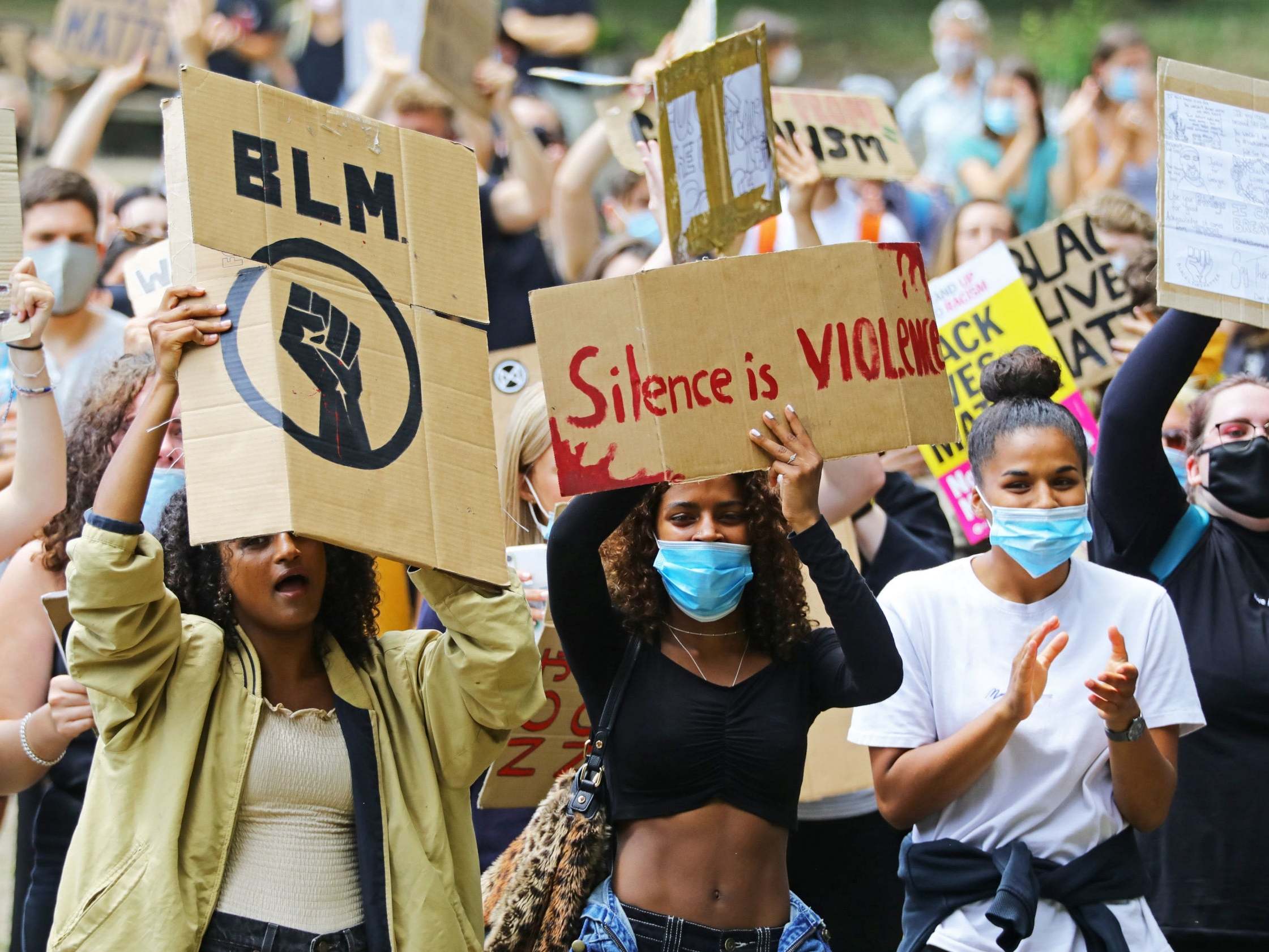Identity is important – that's why we desperately need a new strategy to tackle structural racism
As we mark International Day for the Remembrance of the Slave Trade and its Abolition, we have to look to both the past and the future


Your support helps us to tell the story
From reproductive rights to climate change to Big Tech, The Independent is on the ground when the story is developing. Whether it's investigating the financials of Elon Musk's pro-Trump PAC or producing our latest documentary, 'The A Word', which shines a light on the American women fighting for reproductive rights, we know how important it is to parse out the facts from the messaging.
At such a critical moment in US history, we need reporters on the ground. Your donation allows us to keep sending journalists to speak to both sides of the story.
The Independent is trusted by Americans across the entire political spectrum. And unlike many other quality news outlets, we choose not to lock Americans out of our reporting and analysis with paywalls. We believe quality journalism should be available to everyone, paid for by those who can afford it.
Your support makes all the difference.On this day in 1791, slaves in Haiti and the Dominican Republic rose up against slave owners, in what became a defining moment for the abolition of that horrific trade.
Today, the International Day for the Remembrance of the Slave Trade and its Abolition, we remember the inhumanity that they and millions of others endured.
And yet, more than 200 years later, people are still having to take to the streets to protest against racism and injustices, some of which we know stem from not fully recognising the horrific history of the transatlantic slave trade, and its stain on Britain’s society now.
It’s worth remembering, it was specifically black skin that condemned generations of people to the horrors of chattel slavery.
As Black Lives Matter protests have swept the country, and the coronavirus pandemic has shone a light on racial disparities across society, the terms BME and Bame – meaning “black and minority ethnic” and “black, Asian and minority ethnic” respectively – have been used more and more.
I believe we need to recognise that the increasing use of these terms masks the ethnic identities, individuality and realities of the very people these terms seek to represent. I would never describe myself as Bame, it is a term I reject. In fact, I don’t know many people who would describe themselves with those four letters.
In short, we cannot allow ourselves to fall into the complacency which this catch-all term for “not white British” belies.
The problem with the terms BME and Bame is that we immediately lose the ability to distinguish and therefore understand the true reality of what’s happening for those with differing ethnicities – the experience of a young black man will differ to that of a young Chinese woman. We disguise the real lived experiences of many people.
This can be best seen through the current pandemic, which highlights how it is both impractical and inaccurate to lump all ethnic groups into one block. We know that Covid-19 has had a massively disproportionate effect on people from black, Asian and minority ethnic communities. But statistics from earlier this summer show it is more complex.
The raised risk of death from Covid-19 for people of black ethnic background, of all ages, was two times greater for males and 1.4 times greater for females, compared with those of white ethnic background. Men from a Bangladeshi, Pakistani and Indian ethnic background also had a significantly higher risk of death involving Covid-19 (1.5 and 1.6 times, respectively) than white males, while for females in Bangladeshi or Pakistani, Indian, Chinese and mixed ethnic groups, the risk of death involving Covid-19 was equivalent to white females.
Whether the term is being used administratively or not, identity matters: we are all more than just a label, let alone one which willingly groups so many with different ethnicities and cultures under one four letter acronym. If society chooses to describe people who are simply “non-white” by the same four-letter term this dismisses racial, cultural and ethnic differences.
Remembering that the brutality of the slave trade existed and was abolished is important, as is learning and understanding how people are treated institutionally. Unless we learn and understand our own history we won’t know where we need to do better, what we need to address and how to put that right.
What’s needed is a Race Equality Strategy, which systematically tackles structural racism and does so brick by brick. This can only come about by real, honest and in-depth understanding. Such a strategy must fundamentally reduce the structural racial inequalities faced by all black, Asian and minority ethnic people across the UK and we must seek to fundamentally change the systems and institutions where these disparities exist.
Slavery was able to flourish for centuries, sparked by the greed of capitalism and stoked by brutality of anti-black racism. While we pay homage to those that went before, we must honour their memory by rejecting the systems which made their suffering possible.
Marsha de Cordova is shadow secretary of state for women and equalities and the Labour MP for Battersea
Join our commenting forum
Join thought-provoking conversations, follow other Independent readers and see their replies
Comments